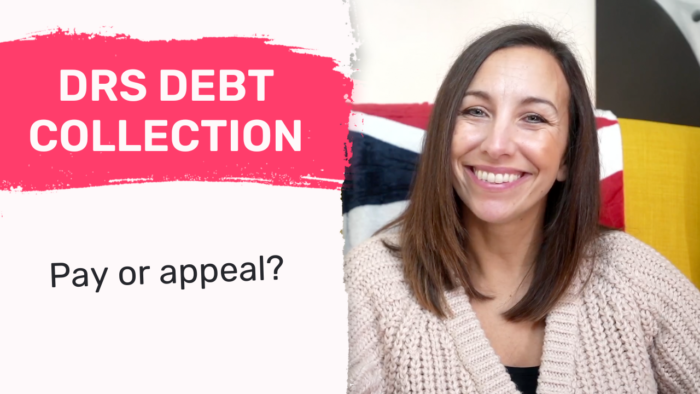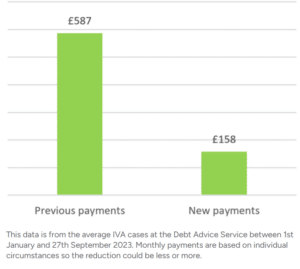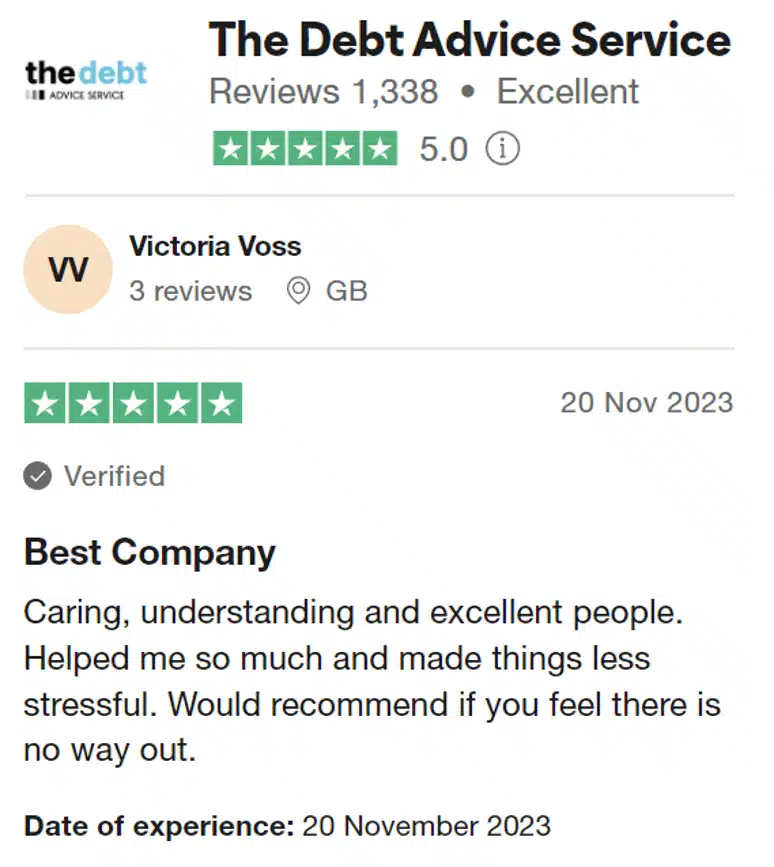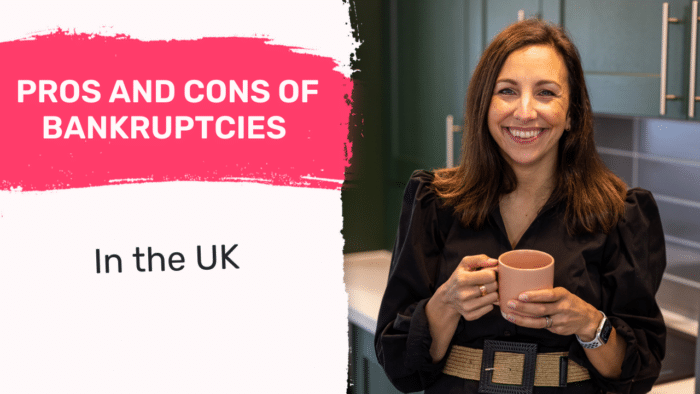Should I Pay DRS Debt Collection (Debt & Revenue Services)?
For free & impartial money advice you can visit MoneyHelper. We work with The Debt Advice Service who provide information about your options. This isn’t a full fact-find, some debt solutions may not be suitable in all circumstances, ongoing fees might apply & your credit rating may be affected.

For free & impartial money advice you can visit MoneyHelper. We work with The Debt Advice Service who provide information about your options. This isn’t a full fact-find, some debt solutions may not be suitable in all circumstances, ongoing fees might apply & your credit rating may be affected.
Are you worried about handling DRS Debt Collection? This can be a big worry. You might feel unsure about what will happen if you can’t pay what you owe. Don’t worry, you’re not alone. Every month, over 12,000 people visit this site to get advice on issues just like this one.
In this article, we’ll cover:
- Who DRS Debt Collection is and why they might contact you.
- How to lower your repayments.
- What DRS Debt Collection can and can’t do.
- What happens if you ignore debt collectors.
- How to stop DRS from contacting you.
We understand how hard it is to owe money as some of us have been in your shoes. We’ve had to deal with owing money and not knowing what to do. Let’s dive in and find out more about dealing with DRS Debt Collection.
Why are DRS debt collectors contacting you?
You may know that you owe money to a company, or you may not. So, when DRS gets in touch, you could either respond or ignore them.
Even if you’re convinced you don’t owe anyone money, don’t ignore DRS. Why? Because even if the debt isn’t yours, they could escalate things. You may find you face court proceedings over a debt you know nothing about!
Should you respond to DRS Debt Collection?
Yes. As mentioned, you should write to DRS as soon as possible even if you know the debt isn’t yours. First, it prevents things from going any further. Second, the DRS has to ‘prove’ the debt is yours!
Whether DRS is chasing a debt for another company, or they’ve purchased the debt, they are obliged to provide evidence that you owe the money. Without proof, a debt collection agency can’t make you pay!
How a debt solution could help
Some debt solutions can:
- Stop nasty calls from creditors
- Freeze interest and charges
- Reduce your monthly
A few debt solutions can even result in writing off some of your debt.
Here’s an example:
Situation
| Monthly income | £2,504 |
| Monthly expenses | £2,345 |
| Total debt | £32,049 |
Monthly debt repayments
| Before | £587 |
| After | £158 |
£429 reduction in monthly payments

If you want to learn what debt solutions are available to you, click the button below to get started.
Should you pay DRS straight away?
You could pay DRS straight away if you have the money and you’re sure the debt is yours. It could save a lot of stress and put your mind at ease.
However, like many other people today, you may be struggling financially which makes it impossible to pay a debt in full.
So, rather than ignore the debt recovery company, stay in touch with them and let them know you’re seeking independent advice from a debt adviser.
Debt collection agencies must allow you the time to do this!
If they don’t and insist on harassing you, report them to the company’s head office. Then file a report with the Financial Ombudsman Service (FOS).
Once you’ve spoken to a debt adviser, let DRS know and make them a debt settlement offer. One you can afford.
Can you ask a debt collection agency to prove the debt?
Yes. In fact, even when you know the debt could be yours, ask DRS to prove it! All debt recovery companies must oblige. Furthermore, a debt collection agent can’t just tell you the debt is yours.
The evidence must be in writing. For instance, DRS Collections must provide an authenticated copy of an agreement or contract you signed!
Thousands have already tackled their debt
Every day our partners, The Debt Advice Service, help people find out whether they can lower their repayments and finally tackle or write off some of their debt.

Natasha
I’d recommend this firm to anyone struggling with debt – my mind has been put to rest, all is getting sorted.
Reviews shown are for The Debt Advice Service.
Will DRS accept your settlement offer?
Debt recovery companies are not obliged to accept your debt settlement offer. However, they must consider it and not just dismiss the offer out of hand.
Most debt collection companies will inform the original creditor of your offer and see if they’ll accept it.
But if DRS purchased the debt, they would decide whether to accept it or not. A typical offer that debt collectors accept is usually in the region of 75% of a debt’s value.
So that’s a good starting point when deciding on a debt settlement offer!
What happens when you can’t settle a DRS debt?
DRS should offer you an affordable payment plan if you can’t settle the debt in full. It allows you to spread the cost over a few months. But if the debt collector agrees on a plan, you must keep to it.
Otherwise, when a payment is missed, the agreement could be null and void! You’d be asked to pay the full amount!
» TAKE ACTION NOW: Fill out the short debt form
What happens when you ignore debt collectors?
It’s never a good idea to ignore debt recovery companies. It might be easier to bury your head in the sand, hoping they’ll go away. But rarely does this happen. In truth, it just makes things more stressful!
Plus you could be missing out on some important information concerning the debt. This includes:
- Discovering the debt isn’t even yours or that it’s too old to enforce
- Being offered a settlement arrangement – one you can afford
- Having some of the debt wiped off
Then, there are the consequences of ignoring debt collections which could be considerable. For example:
- Court proceedings against you could start without you knowing
- Being unaware of a County Court Judgement being registered on your credit file
- Having court-appointed enforcement officers (bailiffs) show up at your home to seize possessions
- Having an attachment placed on your earnings or bank account!
Could Debt & Revenue Services come to your home?
Yes. Debt collectors can legally visit you at home when all other methods of contacting you fail. However, their powers are limited and you can ask them to leave, which they must do!
That said, a debt collection agency must abide by the law when they visit you at home. For example, a representative from Debt & Revenue Services can:
- Contact you about an alleged debt and visit you at home
- Discuss the alleged debt with you politely and discreetly
- Ask you to pay the amount owed to them directly
You don’t have to let debt collectors into your home. Instead, talk them through a letterbox, or an upstairs window!
What can’t DRS debt collectors do?
There are things and behaviours that a debt collection agency cannot do and if they did, it would break the law.
For example, a representative from DRS debt collections cannot:
- Force their way into your home
- Show you documents that appear to be court-issued when they are not
- Pretend they are enforcement officers (court-appointed bailiffs)
- Clamp your vehicle or seize your possessions
- Threaten or harass you in any way
- Discuss an alleged debt with your family, neighbours, friends or employer
- Urge you to get another loan to pay an alleged debt
- Mislead you or use legal jargon to confuse you
- Add charges and fees to an existing debt
Would DRS take you to court?
It depends. For instance, if DRS is chasing a debt on behalf of another company, they could advise the client to start legal proceedings. There’s no guarantee the original creditor would take you to court though.
On the other hand, if DRS bought the debt, debt collectors could take you to court to recover the amount owed! But, they must send you a Letter Before Action (LBA) before they do!
Would you get a CCJ for non-payment of the debt?
If you’re taken to court and you lose the case or you ignore the proceedings, you could get a County Court Judgement (CCJ). It’s best to avoid this if possible because a CCJ will harm your credit rating.
You’d have trouble getting credit, a loan or a mortgage with a CCJ on your credit file!
Moreover, you may have to deal with enforcement agents and you could have an attachment placed on your earnings or bank account.
Can you complain about DRS?
Yes. If you feel you’re being treated unfairly or a debt collection agent oversteps the legal mark, you should file a complaint. First, lodge a complaint through the DRS complaints procedure.
You have to complain to the debt collection agency before you can contact the Financial Ombudsman. Next, you have the right to lodge a complaint with the Financial Ombudsman Service!
Can you stop DRS from contacting you?
No. Debt collection companies have the right to contact you over an alleged debt. So you can’t prevent them from contacting you altogether.
However, they can’t harass you with constant phone calls, emails or texts. That said, you can tell them how you want to be contacted. And when you’d like to be contacted!
DRS must respect this request and if they don’t, it could be deemed harassment which is against the law! If the case ever went to court, you could use the harassment card against DRS and a judge could agree!
How do you contact DRS Collection?
I’ve listed the ways you can contact DRS here:
| Website: | https://my-drs.co.uk/ |
| Phone number: | 0151 545 1500 – 9am to 5:30pm Monday to Friday |
| Email: | online form |
| Registered Office: | 1st Floor, Moorgate Point, Moorgate Road, Knowsley Industrial Park, Liverpool L33 7XW. |

